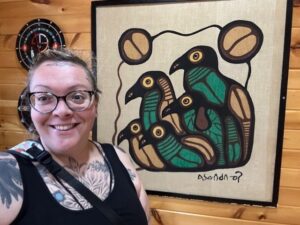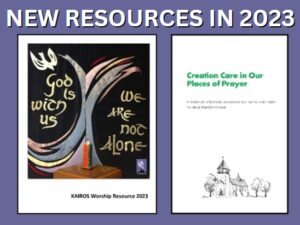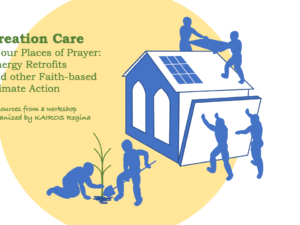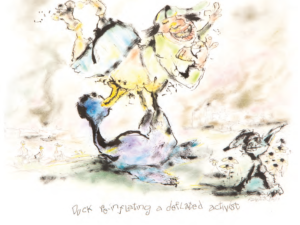Spirited Reflection: Living Hope
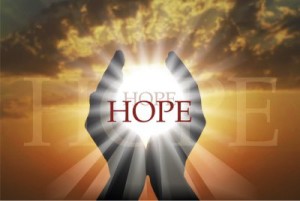
Jeremiah: 33: 14-16
Luke 21: 25-36
As we begin this Season of Advent, the passage in Jeremiah is a message of hope and promise. The One who will come will bring justice and righteousness. God will not abandon the people.
The tone, at one level, appears to change dramatically in the Gospel of Luke. Jesus is warning his disciples of events that will occur. The images are stark – destruction, distress, suffering, and terror. The images are apocalyptic. These are not the images we expect as we begin Advent. Where is the hope in these images?
How do we find hope in these times? Massive wildfires ravage communities. Conflicts fuelled by weapons from powerful countries, lead to thousands of casualties of innocent civilians. Thousands of migrants walk hundreds of kilometers in a desperate search for safety. Human rights continue to be violated and perpetrators do so with an arrogant sense of impunity. These are almost daily images. They verge on the apocalyptic. What is behind these images? Why are these events happening? What are the underlying causes?
Apocalyptic is from the Greek meaning to uncover or to reveal. Isn’t this what KAIROS and its member churches are called to do – to uncover and to reveal?
Thousands of Canadians have experienced the KAIROS Blanket Exercise. This resource is now going global as it is being adapted to different contexts.
The Blanket Exercise reveals a history of the relations between Indigenous people and settlers. This history is known to Indigenous people but not to most settlers or newcomers. The racism Indigenous people have experienced and continue to experience is powerfully exposed in the Blanket Exercise and thankfully so is the resilience and strength of Indigenous people in Canada.
Revealing the truth is an essential step in reconciliation.
Visits by KAIROS’ partners through the Women of Courage program contribute to uncovering the connections (and sometimes uncomfortable ones at that) between Canada and the countries the partners come from. These connections may include Canadian mining companies operating in regions where human rights are systematically violated.
Uncovering or revealing injustices rarely leads to immediate change but shining a light on these injustices is an essential step. The harm needs to be named.
Jesus exhorts his disciples to be alert to the signs and to live as He has taught them.
In Becoming Human, Jean Vanier writes that to become human “can be a long and sometimes painful process. It involves a growth to freedom, an opening up of our hearts to others, no longer hiding behind masks or behind the walls of fear and prejudice. It means discovering our common humanity”. (Anansi Press, Toronto, 1998, p.1)
To hope is not passive. It is a calling or a vocation to be alert to the signs of the times and to act.
As we begin this Advent Season, let us be attentive to the signs of hope and reflect on how we might (however modestly) contribute to a more hopeful and more just world.
Stephen Allen has represented The Presbyterian Church in Canada on KAIROS’ board of directors and steering committee for a number of years. He served for over twenty years as the Associate Secretary for Justice Ministries with The Presbyterian Church in Canada. Since retiring in June 2018, Stephen has more time for music and volunteering, including serving as chair of the Indigenous Rights Working Group at the Church of The Redeemer, an Anglican parish in Toronto.




